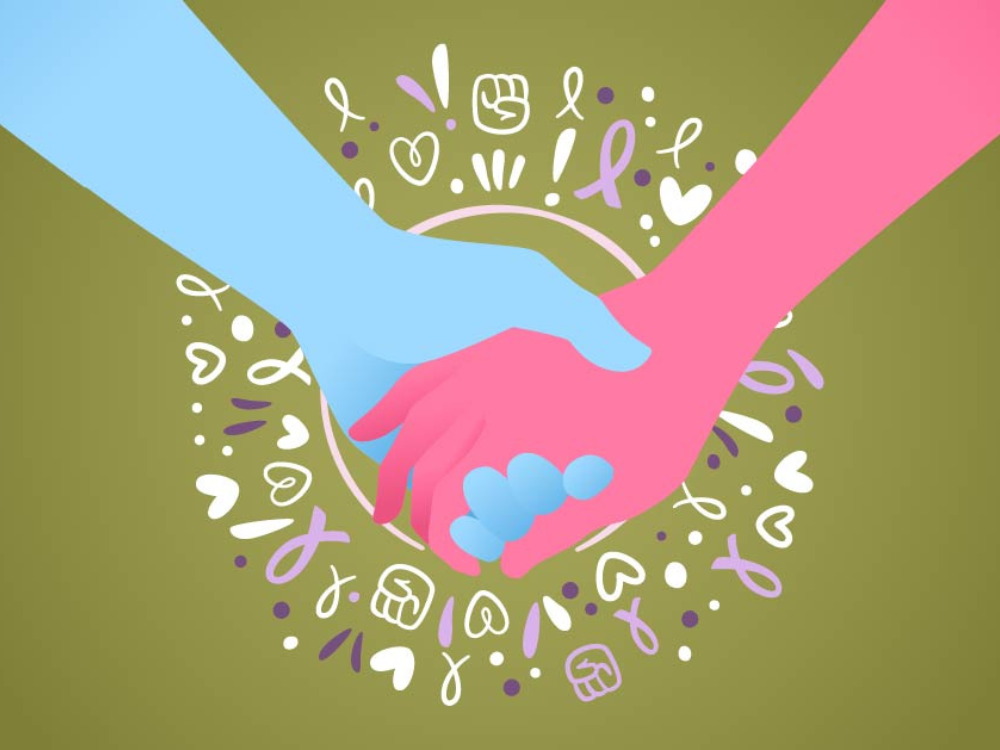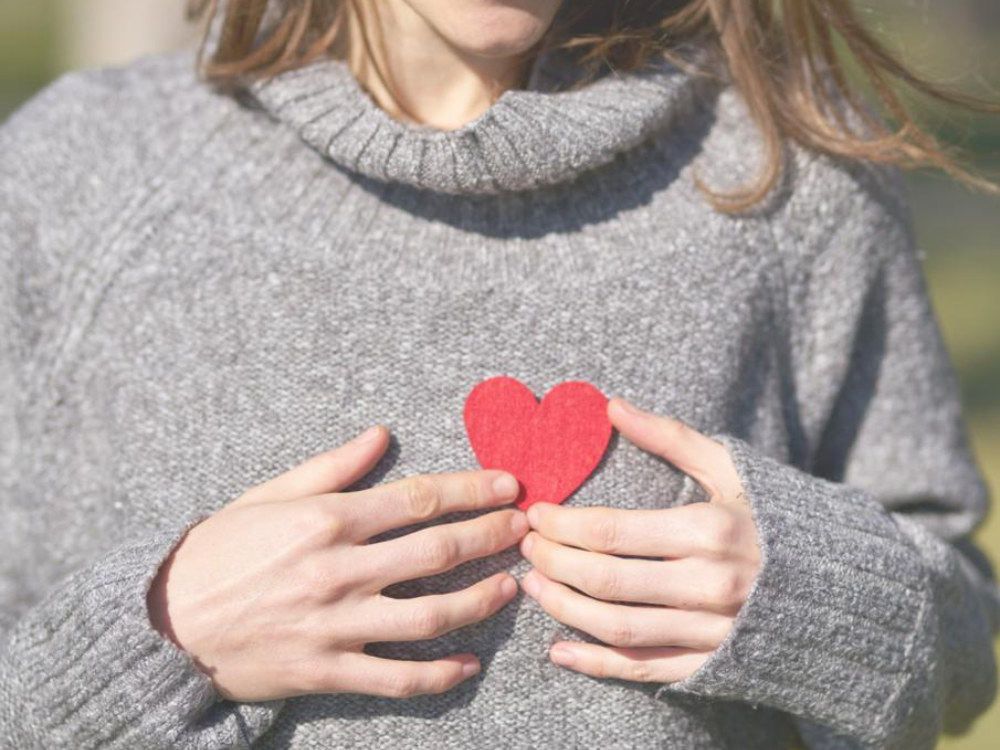WHEN THEY TOLD ME I HAD TO HAVE A CHEMO…
“You have faced many challenges in life and I have seen you fight and come on top. This cancer is no different. YOU ARE A FIGHTER and I know you will come out on top as always”, some words a daughter told her mother before she was heading for her chemotherapy session.

Sharing her experience, Naina a 42-year-old mother says “before you’re diagnosed with cancer, you’re just a person, like everyone else. But once you’re diagnosed with the big C, it can feel like you’ve become your cancer. Chemotherapy is part of your treatment now.” Getting this news is scary. The thought of chemotherapy is frightening too.
Chemotherapy or "chemical treatment" has been around since the days of the ancient Greeks. However, chemotherapy for the treatment of cancer began in the 1940s. Since then, it is a drug treatment that uses powerful chemicals to kill fast-growing cancer cells which multiply much more quickly than most cells in the body. As you begin chemo, and your hair starts to fall out and you begin to really look sick, it feels like there’s a newly drawn line between you and the “normal” world.
Though it is an effective way to treat many types of cancer, chemotherapy treatment also carries a risk of side effects. Side effects that are scary, at least the movies made them look awful. Still some chemotherapy side effects are mild and treatable.
Side effects that occur during chemotherapy treatment

Common side effects of chemotherapy drugs include:
- Nausea
- Vomiting
- Diarrhea
- Hair loss
- Loss of appetite
- Fatigue
- Fever
- Mouth sores
- Pain
- Constipation
- Bleeding
Many of these side effects can be prevented or treated. Most side effects subside after treatment ends.
Long-lasting and late-developing side effects
Chemotherapy drugs can also cause side effects that don't become evident until months or years after treatment. Late side effects vary depending on the chemotherapy drug but can include:
- Damage to lung tissue
- Heart problems
- Infertility
- Kidney problems
- Nerve damage (peripheral neuropathy)
- Risk of a second cancer
Cancer scares the wits out of most people. So, when you start chemo, expect your friends, family and colleagues to act weird. Expect yourself to act weird. Chemo brings all kinds of hang-ups, fears and baggage to the forefront. Chemo is full of unknowns, the experience is different for everyone. So, it’s impossible to know exactly how chemo will unfold for you. But that doesn’t mean it won’t help to prepare.
HOW YOU PREPARE
- Ask questions. It’s completely normal to be anxious about what you’re going through. The doctors and staff will do their best to ease your worries, so don’t hesitate to ask questions.

- Pillows, lots of pillows: Sometimes chemo can be so uncomfortable and achy that regular chairs, couches, and beds seemed like torture devices. Pillows can then come to the rescue.

- Social media: Chemo can be isolating. But social media can be one’s own cheering section. It helps to weather the endless days at home in pajamas. If facebook is not your thing, try another platform. Start commenting on a website dedicated to your kind of cancer , or try Twitter or you tube or Instagram. It will help you feel less alone.

- Movies: Netflix, amazon prime, hotstar vip, whatever’s your pleasure, make sure you have access to movies. There would be a lot of days when one wouldn’t make it easy out of the bed .Movies would be saving grace on those days.

- Enlist a team of friends and family to help you get through it: some close friends and relatives also make it to early appointments. Set up a network among family and friends who are able to help out with food and household help and give emotional support during treatment.
- Create a big cancer binder: Put everything in it: Diagnostic test results, imaging, handouts from your oncologist, important phone numbers, and calendars for treatment and for helpers. Bring it to each appointment. Even in these days of electronic records, it can be helpful to have everything in one place, on paper.

- Check with your oncologist about medications. Make sure your oncologist is aware of all the medications you’re taking, including vitamins and supplements.

- Put your finances and your work life in order as much as you can: You will probably have to take some time off, and perhaps lots of time. Be honest with yourself and with your work supervisors. Cancer is definitely straining for family’s pocketbook.Cancer can wreak havoc on patients’ finances. But there are programs out there to help. Most big hospitals have medical insurance to help you through the complex world of cancer treatment. If you think cancer may affect you financially, get help as soon as you can, not when you’re facing an overwhelming bill.

- Figure out what makes you happy. Set aside time for that: Going through chemo is intense. You feel sad, scared, expectant, sick, overwhelmed, often all at once.

You cannot focus on cancer 24/7 or you will go bonkers. Try to do something each day that you really enjoy. One can start with yoga in the morning or going out on a walk with your pet. So figure out what brings you happiness and do it as much as you are able. Even in the worst times, you can find good things, even if they’re small.

- Don’t go crazy on junk food : Street snacks like gol guppe must be very appealing, but you have to strictly follow your diet. Remember your body is under a lot of stress and needs good nutrition. Now is not the time to worry so much about carbs. Fruits, veggies, whole grains, mashed potatoes, custard, and cereals would be go-to foods during chemo.

- Avoid risk of an infection.
Your body has enough to handle without dealing with an infection from an outside source. Your immune system is decreased during chemo. So it’s best to avoid crowds. Keep your hands clean with sanitiser. Don’t touch surfaces and keep your hands away from your face.

Everyone's path forward after chemo is different. "There's no one-size-fit-all prescription". So nourish yourself, enjoy yourself. Carve out time to feed your emotional spirit. Read inspirational books or keep a journal. Express yourself through creative outlets like drawing, painting, writing or music. Do whatever makes you happy. This is your chance to refocus on what matters most. The cancer experience should spark a pursuit of new experiences. Remember, there are many avenues of support for you. Never hesitate to ask for help. It’s there for you. And never loose hope. Once you choose hope, anything is possible. Hope is seeing light despite of being surrounded by darkness. Hope is the only thing stronger than the fear.
Author-Meenakshi Bharti,Sejal Bysack
Editor- Akriti Gupta, Abhinita Singh




